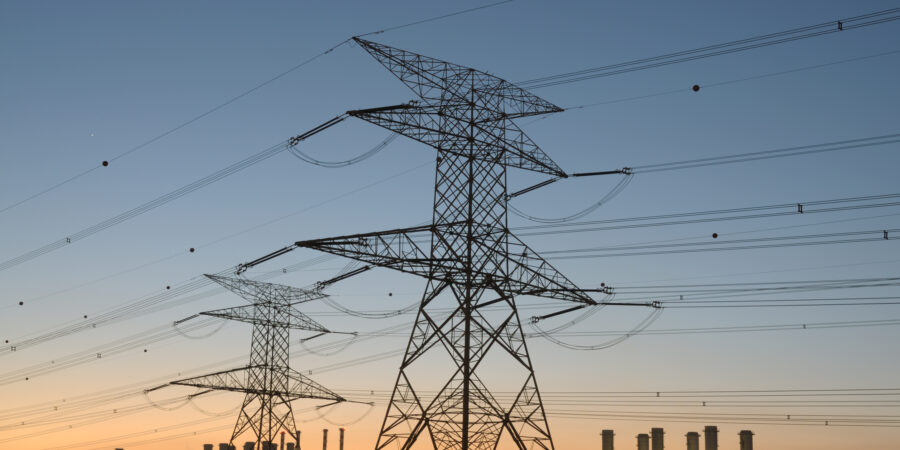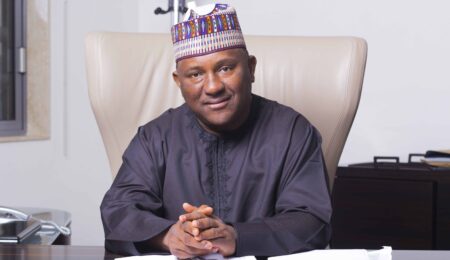Nigeria, with its large population and growing economy, has faced longstanding issues related to power generation, distribution, and access, which has consequently served as a bottleneck to its economic growth. Despite having the potential to generate a total installed capacity of 10,396MW of electricity the country only manages to transmit around 5000 Mega-Watts- just around half of its capacity.
Recent data from the National Bureau of Statistics (NBS) has revealed that on a year-on-year basis, electricity supply declined by 1.74% compared to 5,956 (Gwh) reported in Q1 2022. However, there was an increase in Electricity supply from 5,611 (Gwh) in the previous quarter to 5,852 (Gwh) in Q1 2023.
Generally, the sector has shown considerable growth in other areas such as the total number of customers, and number of metered customers generated within the first quarter of 2023.
Total customer numbers in Q1 2023 stood at 11.27 million from 11.06 million in Q4 2022, showing an increase of 1.89%. On a year-on-year basis, customer numbers in Q1 2023 rose by 5.99% from 10.63 million reported in Q1 2022.
Among the distribution companies (Discos), Ibadan Disco boasted the largest customer base, serving approximately 2.2 million customers. Following closely behind were Abuja Disco and Benin Disco, with customer counts of 1.32 million and 1.2 million, respectively.
Similarly, metered customers stood at 5.31 million in Q1 2023, indicating a growth of 3.61% from 5.13 million recorded in the preceding quarter. On a year-on-year basis, this grew by 10.86% from the figure reported in Q1 2022 which was 4.79 million. In terms of metered customers, Ibadan Disco maintained its lead, having the highest number of metered customers. Ikeja Disco and Abuja Disco followed, securing the second and third positions, respectively.
In addition, estimated customers during the quarter were 5.96 million in Q1 2023, higher by 0.40% from 5.93 million in Q4 2022. On a year-on-year basis, estimated customers increased by 1.99% in Q1 2023 from 5.84 million in Q1 2022.
The increase in both total customer numbers and metered customers signifies progress in expanding access to electricity and ensuring more accurate billing across the sector.
Revenue collected by the DISCOs during the period was N247.33 billion from N232.32 billion in Q4 2022. On a year-on-year basis, revenue generated in the reference period rose by 20.81% from N204.74 billion recorded in Q1 2022.
Ikeja Disco recorded the most revenue for the quarter grossing around N49 billion followed by Eko, Abuja and Ibadan Discos with N41.7 billion, N38.1, and N24.5 billion respectively.
An unbalanced scale
Although these goals may appear admirable, there are valid concerns regarding the power situation in the country. Let’s revisit the starting point: “Electricity supply has experienced a year-on-year decline of 1.74%, contrasting with the 5,956 (Gwh) reported in Q1 2022.” This obviously contradicts the revenue growth. Despite the increased revenue of DisCos, there has been only a marginal improvement in energy supply to customers. Ideally, one would anticipate advancements in power generation, but unfortunately, the opposite seems to be true.
The recent developments in the country’s power sector amplify the concerns even further. The federal government has recently disclosed its intention to potentially raise electricity tariffs by 40% starting from July 1, 2023. The recurring question arises: why are tariff increases always proposed? One straightforward answer lies in the socio-economic conditions of the country. As stated by power stakeholders, the reasons for such increases stem from multiple factors, including the rise in petrol prices due to subsidy removal and the fluctuating exchange rate resulting from the Naira’s float.
This means Nigerians would face increased electricity costs while the power supply, at best, remains stagnant or, even worse, diminishes further.
Considering the historical pattern, the latter scenario is more likely. This situation is detrimental to a country that is still grappling with the harsh reality of the recent fuel subsidy removal. Endemic epileptic power supply in the country has made the use of generators an alternative for homes and businesses making Nigeria the highest importer of Premium Motor Spirit (PMS) and diesel generators in Africa as of 2022. This is unsustainable, especially for businesses.
In the first half of 2022, top listed firms by market capitalisation, including Dangote Cement, BUA Foods, Guaranty Trust Holding Company (GTCO), and Zenith Bank, expended N207.54 billion on energy.
Moreover, even the government itself is not immune to the consequences of the power problem. A recent analysis by Premium Times analysis highlighted that certain Ministries, Departments, and Agencies (MDAs) of the government are projected to spend approximately N22 billion on generator maintenance in 2023. This further emphasizes the magnitude of the issue. Furthermore, historical evidence has demonstrated that the power problem adversely affects investors’ interests. Numerous companies, such as Dunlop and Michelin tire manufacturing firms, have relocated from Nigeria and only use the country as a sales market after manufacturing their products outside Nigeria. This trend has resulted in job creation for millions of individuals outside the country while leaving many unemployed Nigerians at a disadvantage.
But there is light at the end of this tunnel. In the first quarter of the year, former president Muhammadu Buhari assented to a bill that allows Nigeria’s 36 states to generate, transmit, and distribute electricity in areas covered by the national grid. There are high hopes this could birth a new dawn for Nigeria’s paralytic power sector. However, it is important to note that this transformation will take time, as the implementation of projects by different states cannot happen instantaneously. In the interim, it is crucial for the government to focus on generating more power for the citizens and the struggling economy. Immediate efforts should be directed towards improving the current power situation and addressing the challenges faced by the country in this sector.





